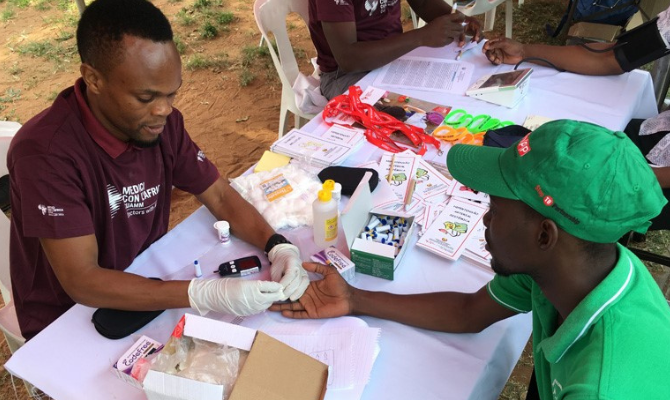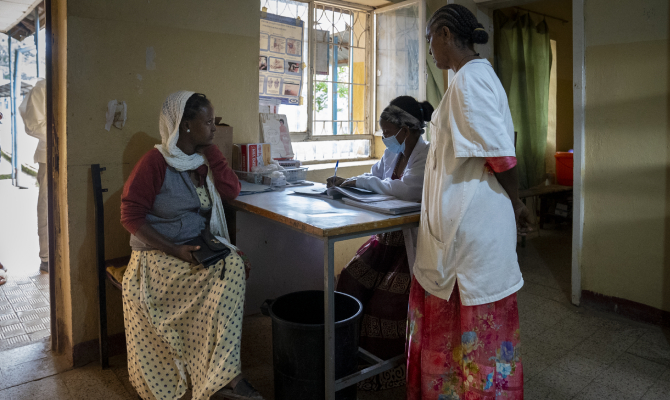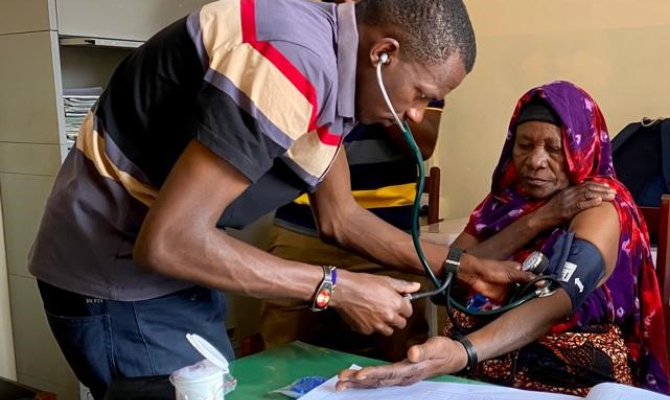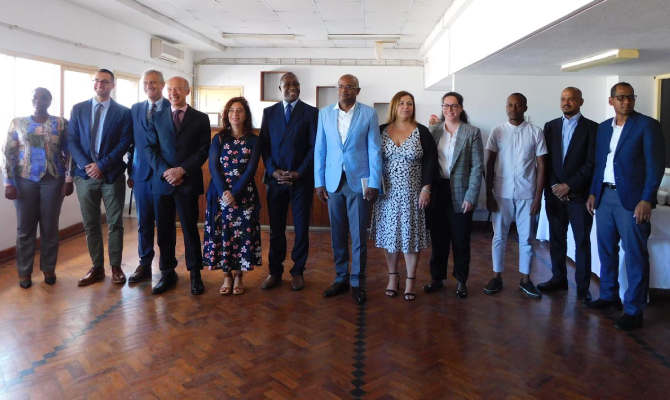From February 2023, all health units in Mozambique will be able to register patient data on chronic non-communicable diseases, particularly diabetes and hypertension, in the SISMA statistical system, developed by the Ministry of Health (MISAU), thanks to the support of Doctors with Africa CUAMM. An important and innovative step for the country, developed as part of the “Prevention and control of non-communicable diseases” project in Maputo and the provinces of Sofala and Zambezia, financed by the Italian Agency for Development Cooperation (AICS) and implemented in partnership with the Community of Sant’Egidio and AIFO. The intervention, recently concluded, has contributed to strengthening the Ministry of Health’s capacity to respond to the increasing incidence of noncommunicable diseases in the country, developing action aimed at improving early diagnosis and treatment.
According to the World Health Organisation (WHO), chronic non-communicable diseases cause 28% of deaths in Mozambique, of which 12% are due to cardiovascular diseases, 3% to cancer and respiratory diseases, 2% to diabetes and 7% to other chronic diseases. 33.1% of the Mozambican population is hypertensive: only 18.4% are aware of their condition and, even among those who are aware, about half do not monitor themselves and do not follow treatment regularly.
«The current digital system already permitted the collection and recording of epidemiological data, e.g. cases of malaria, while for chronic non-communicable diseases the available data were recorded monthly in the paper registers of each health unit and then transmitted first to the district, then to the province, and finally to the Ministry – says Paolo Massaro, who was in charge of the project for CUAMM-. Now in SISMA all screening for diagnosis and follow-up visits of patients are recorded, divided by gender, reporting any associated diseases and complications».
Together with the Ministry, CUAMM organised specific training for IT and statistical experts and focal points for chronic non-communicable diseases in the various provinces. Achieving this result has been a long process, above all constant coordination work with the local authorities and the Ministry’s Planning and Cooperation Department, which made it possible to create the first MISAU technical working group on chronic diseases.
In addition to the digitisation of data, the “cantinhos de rastreio”, spaces within the health units dedicated to screening for chronic non-communicable diseases, were also created. Activists and volunteers, including nurses awaiting employment or already retired, have been trained in chronic disease services. Today they take care of measuring blood pressure with a digital sphygmomanometer and checking the weight and height of all people who come to the health units before they are seen by doctors. «The cantinhos initiative was one of the best strategies adopted by the project – says Artimisia Mainato, nurse in charge of the project in the province of Sofala – because it allowed for a significant increase in screening, easing the workload of the clinical doctors and, as a result, also reducing waiting times for patients». In January 2023, the Ministry of Health approved the introduction and expansion of Cantinhos de Medição de Tensão Arterial on a national scale, as a standard and compulsory countrywide strategy.
The cantinhos are an additional and free service of the health units, which has led to a significant increase in the number of people screened for chronic diseases, which has grown from about 5 to 40-50%. A space to take care of people.





